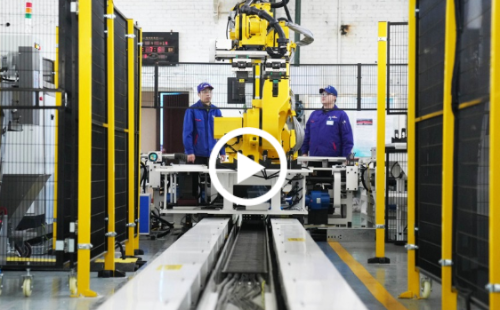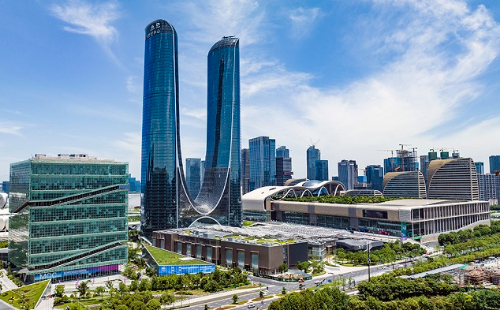Young talent injects new vitality into village
HANGZHOU — When he learned that Yucun village in Anji county, East China's Zhejiang province, was recruiting "global partners" last July, Anji native Chen Zhe decided to return from Shanghai to his hometown.
"It's pretty bold for a small village to call for talent from all over the world," says Chen, who had been working in brand marketing before his move back home.
Yucun is rich in quality limestone resources, and more than half of its locals relied on quarrying in the 1980s and '90s. But as its environment deteriorated and several people lost their lives when mining for limestone, the locals decided to make a change.
In June 2003, Zhejiang launched a "Green Rural Revival Program "which aimed to renovate about 10,000 incorporated villages and transform about 1,000 central villages among them into examples of moderate prosperity in all respects.
In the two years afterward, Yucun shut down limestone quarries and cement factories. And it boosted eco-tourism industry, and has today become a model of China's beautiful countryside.
In 2021, Yucun was named one of the "Best Tourism Villages" by the United Nations World Tourism Organization.
"Thanks to the program, Yucun has entered a new stage of development, and its rural areas are becoming more and more attractive to young people," says the village's Party chief Wang Yucheng.
When Chen returned home last year, he had only planned to stay there for a day or two, but his visit stretched to three months. During that time, local authorities invited more than 60 young people, including Chen, to work together to develop new business models for the village.
Chen opened a Chinese comic-themed cafe in the newly built youth library in the village, in March, leading a team with an average age of under 30. The modern building, converted from a cement factory, is shaped like a key, and it relies on a renewable photovoltaic power system to offset carbon emissions.
Chen cooperated with the Shanghai Animation Film Studio to install models in the cafe that were based on characters from animations produced by the company, such as Monkey King Sun Wukong, Calabash Brothers and Black Cat Detective.
"It feels like Yucun is a laboratory with many possibilities, and it can inspire the development of villages across China," Chen says.
"Rural revitalization depends on people, especially the younger generation with ideas and vitality," says He Miao, Party chief of Tianhuangping town which administers Yucun.
She notes that since the village's global partners program was launched, 42 projects have been introduced there, covering research and education, cultural creativity, the digital economy, and the agriculture and forestry industries. The program has attracted over 1,100 young people from home and abroad to work and live in Yucun and surrounding villages.
In order to support young people starting businesses in Yucun, the local government proposed the establishment of a large community of young talent. The Qinglaiji Project, which has a scale of more than 30,000 square meters, will be open soon to provide young entrepreneurs a working environment and accommodation facilities.
He says the community provides apartments, youth hostels, digital nomad communes and boutique homestay facilities for the young people working in Yucun, with a total of more than 4,000 beds available.
Xu Song, owner of a digital nomad commune in the young talent community of Yucun, says that digital nomads — people who work remotely and have professional skills — are an important group for rural vitalization. His commune aims to gather young people in the village, bringing new blood into local development.
"Even before the construction of our commune has been completed, it had attracted more than 40 digital nomads from across the country," Xu says.
"A single room in the commune costs 2,000 yuan ($279) a month, and a bunk in a room for six people only costs 400 yuan a month," Xu says. "We are providing an inexhaustible supply of talent resources for the countryside."
Zhang Hang, a digital nomad, and his team opened their studio in Yucun last year, focusing on making short videos. "We came to Yucun from the city because we yearned for the waters and green mountains here," he says. "Working in such an idyllic environment, we have improved both our moods and working efficiency."
Chen says that 10 percent of his cafe's revenue this year will be returned to Yucun as part of the village's collective income.
Last year, Yucun received 700,000 tourists, with its tourism revenue totaling about 35 million yuan and the per capita income of locals hitting 64,000 yuan.
"We believe that hope for the future lies in the youth, and we hope to work with them to build a more beautiful countryside and expand a new path of green development," says Wang, Party chief of Yucun.
Xinhua





